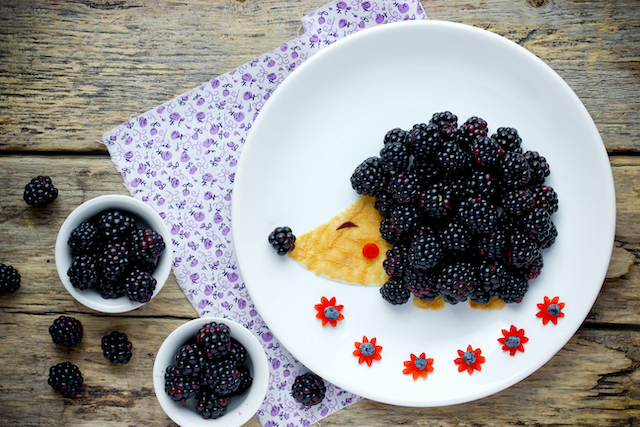If you feel a little lost about how to talk to your children about food, you’re not alone.
Many parents struggle to get their little ones to eat nourishing foods or don’t know where to start when trying to establish a healthy relationship with food in their children. It’s always going to differ depending on the little human you’re raising but here are a few pointers to get you started.
Connect nourishment to things they care about
Kids love to know the ‘why’ behind things. Telling a child that a food is good for them may not be enough to spark an interest in them, however, if you connect it to something that’s important to them, they may be more inclined to eat it. If your child loves to play sports or dance — or even if they prefer more creative things like drawing or painting — link what they’re eating back to their ability to perform their favourite things. For example, nourishing foods help them to grow stronger and give them energy so that they can do more of the things they love to do.
Get them involved
Whether it’s growing your own herbs and vegies in your garden or letting them help you with the cooking process — getting kids involved can get them interested in what they’re eating. Obviously the level of involvement will change depending on how old they are but find something that they can do to help. (Hot tip: starting young with this can make all the difference when they hit their teenage years!) They’ll love spending the quality time with you and it provides you with the opportunity to talk to them about the food that you’re preparing and how fun it is to make food you love (as well as food that is nourishing!).
Try to avoid linking food to storing body fat
The language we use around food is important as it establishes the foundation of a relationship with food that the child will develop. Using words like “that kind of food will make you fat” can set up a fear of food while also inadvertently linking body shape and size to self-worth. Saying “that is bad for you” sometimes leads the child to think they are bad for eating it. Food is not “good” or “bad” – it is either nutritious or it isn’t. So instead, talk to children about how food nourishes us and builds our health, energy, brain power and sports performance, or doesn’t nourish us and detracts from these things. Consider teaching them about the kinds of foods that help to foster what they care about so they are empowered to make decisions that support this, and inadvertently, their health. This will help them to focus on their nourishment instead of their body weight and differentiate between how they look and their self-worth.
Consider how you talk and act around them
It’s not just what we say directly to children but also what is said in their presence. What is your relationship with food and your body like? Are you regularly eating different things to the rest of the family because you’re watching what you eat? Do you talk about the shape or size of your body in front of them in a way that reflects a negative self-image to them? Kids pick up as much from this as they do from what you say to them. Please know that this is not intended to elicit any guilt or judgement, it’s just to encourage bringing awareness to your own relationship with food and your body. Look for ways to work through any challenges you may have in this regard. Be gentle with yourself as you do this.









